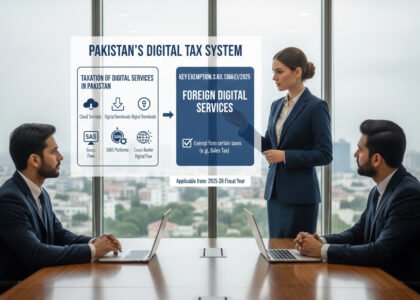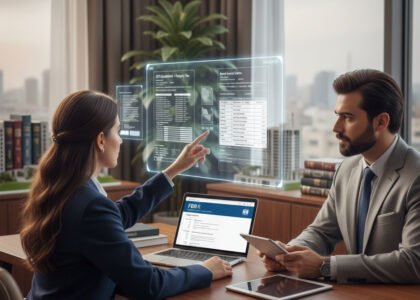The Finance Act 2025 introduces a significant shift in tax appellate procedures through an amendment to Section 127(1) of the Income Tax Ordinance, 2001. Taxpayers now have greater flexibility in choosing their appellate route—allowing them to bypass the Commissioner (Appeals) and proceed directly to the Appellate Tribunal, provided they surrender the lower-level appeal.
This article outlines the new provisions, explains its scope, and provides practical guidance for taxpayers and consultants.
Text of the Amendment
Two key changes were made to Section 127(1):
Substitution in opening phrase:
Old: “Subject to section 126A, any person…”
New: “Any person, other than State-Owned Enterprise (SOE),…”Insertion of a new proviso:
“Provided that an aggrieved person under sub-section (1) may have the option to either file appeal before Commissioner Inland Revenue (Appeals) directly or may surrender his right of appeal before Commissioner Inland Revenue (Appeals) and avail the next statutory appellate forum by filing the appeal directly before the Appellate Tribunal Inland Revenue.”
Key Takeaways from the Amendment
SOEs Excluded from Appeal Rights under Section 127(1)
The right to appeal under Section 127(1) is no longer available to State-Owned Enterprises (SOEs). This means SOEs cannot initiate an appeal at the Commissioner (Appeals) level under this section.
Example: A government-owned utility company cannot file an appeal under Section 127(1) and must follow the route prescribed for SOEs or alternative procedures under special provisions.
New Option to Bypass Commissioner (Appeals)
A private taxpayer or non-SOE can now choose one of two routes:
File an appeal before the Commissioner Inland Revenue (Appeals) (traditional route)
ORSurrender that right and directly approach the Appellate Tribunal Inland Revenue
Example: If a taxpayer believes the issue involves complex legal interpretation or previous unfavorable decisions at the Commissioner level, they can now skip that step and move directly to the Tribunal.
Legal Implications
Pros of Direct Appeal to Tribunal
Saves time in cases expected to go beyond Commissioner level
Helpful where issues are purely legal or already adjudicated previously
Useful in high-stakes disputes with precedent value
Risks or Limitations
Once the right before Commissioner (Appeals) is surrendered, it cannot be revived
Tribunal procedures may be more formal and costly
May involve stricter evidentiary standards
Practical Advice
Assess the nature of the dispute: Is it legal or factual? For legal matters, the Tribunal may be more effective.
Consider past outcomes before Commissioner (Appeals)
Consult a tax advisor or legal counsel before waiving the first right of appeal
FAQs – Section 127(1) Amendment (Finance Act 2025)
What is the key change under the amendment to Section 127?
Taxpayers can now directly appeal to the Appellate Tribunal Inland Revenue, bypassing Commissioner (Appeals), if they surrender their first appeal right.Who cannot file an appeal under this section now?
State-Owned Enterprises (SOEs) are excluded from this right.Is this option automatic?
No. The taxpayer must expressly waive the right to appeal before the Commissioner (Appeals).What happens if I skip the Commissioner (Appeals)?
You can directly file with the Tribunal but cannot later go back to Commissioner (Appeals).Why would someone skip the first level of appeal?
To save time or when they believe the Tribunal offers a fairer or more technical review.Do I need to record this waiver in writing?
Yes, the surrender of appeal rights must be documented per prescribed FBR procedures.Can I skip the Commissioner if my case is urgent?
This may be strategic, but urgency alone doesn’t justify skipping unless you formally waive your rights.Are there additional costs for going to the Tribunal first?
Possibly, as the Tribunal process may involve legal representation and higher compliance.Is this applicable to old cases or only new ones?
It applies to appeals filed after the enactment of the Finance Act 2025.What if I am an SOE—can I still appeal?
Yes, but not under Section 127(1). You must follow alternate routes applicable to government entities






